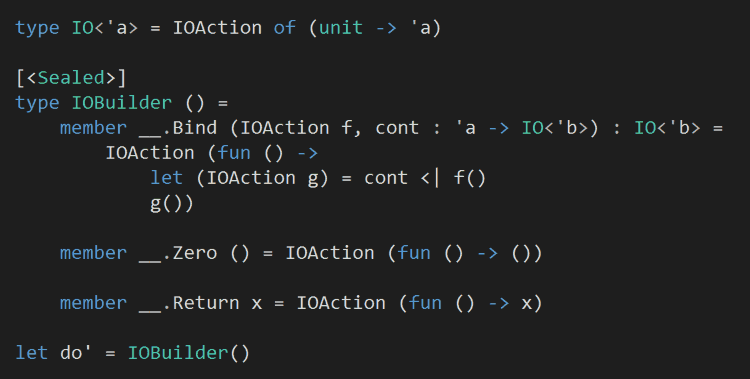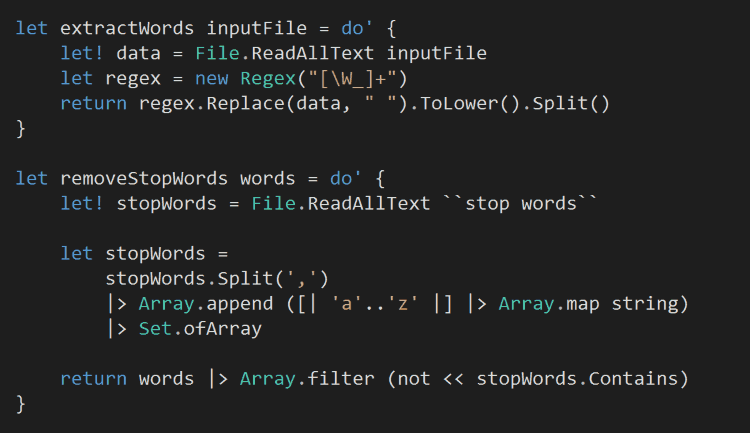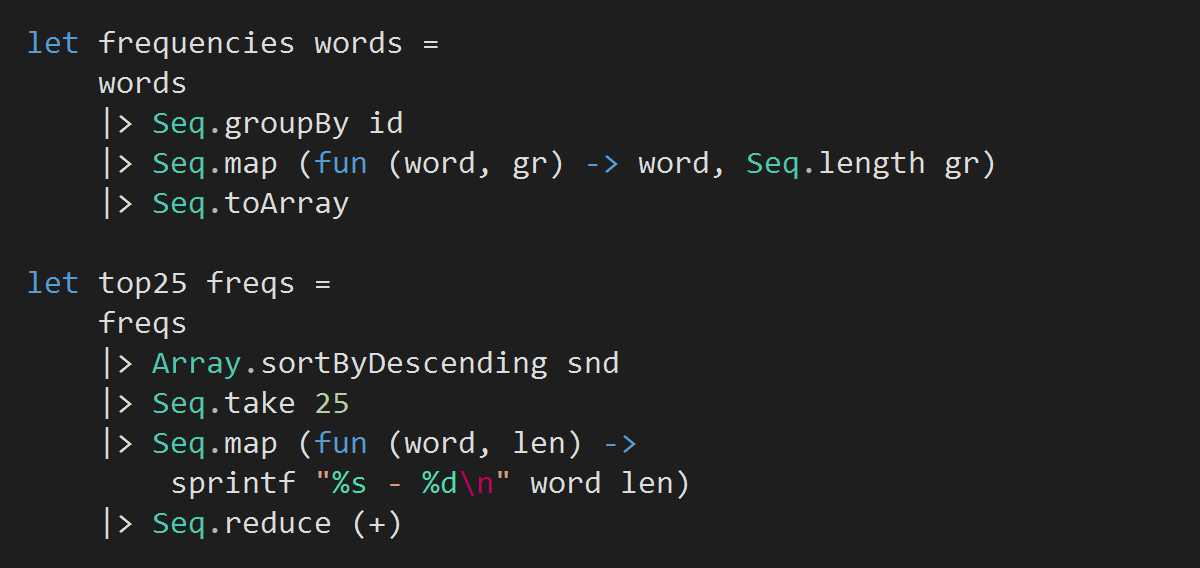
Yan Cui
I help clients go faster for less using serverless technologies.
NOTE : read the rest of the series, or check out the source code.
If you enjoy reading these exercises then please buy Crista’s book to support her work.
Following on from the last post, we will look at the Quarantine style today.
Style 24 – Quarantine
Constraints
- Core program functions have no side effects of any kind, including IO.
- All IO actions must be contained in computation sequences that are clearly separated from the pure functions.
- All sequences that have IO must be called from the main program.
This style is similar to The One (aka Monads) style we saw earlier on. The notable difference here is that only the side-effecting IO code need to be contained, so we can interpret this as the IO Monad style.
Taking inspiration from the computation expression we built for The One style, we can make some modifications here.
We’ll start by declaring a generic IO<‘a> type that will encapsulate an IO action. Then we can build a computation expression around this wrapper type.
Unfortunately do is already a reserved keyword in F#, so we’ll have to make do with do’ instead (see what I did there? ![]() )
)

Now we can add a couple of helper types and methods to wrap around IO operations – such as reading from a file or printing to console – in our IO<‘a> type.

We need to read from files in order to extract words from Pride and Prejudice and to remove stop words, so both functions use our do’ computation expression. Notice that we’re using the aforementioned File.ReadAllText helper method, which returns an IO<string> so our do’ computation expression can bind to.

Other pure functions can stay as they are.

But, our main program will need to be contained since it needs to perform IO operations via the extractWords and removeStopWords functions.

Note that no work has actually been done yet.
So far, we have merely composed together what actions (IO and otherwise) we will perform when this program is run. To complete the puzzle we need one more thing – a mechanism to execute these side-effecting programs.
Something like this IO module perhaps?

which we can use to execute our mainProgram.

and voila!
Now, the IO operations (including printing to the console) will be performed along with other pure functions.
You can find the source code for this exercise here
Whenever you’re ready, here are 3 ways I can help you:
- Production-Ready Serverless: Join 20+ AWS Heroes & Community Builders and 1000+ other students in levelling up your serverless game. This is your one-stop shop for quickly levelling up your serverless skills.
- I help clients launch product ideas, improve their development processes and upskill their teams. If you’d like to work together, then let’s get in touch.
- Join my community on Discord, ask questions, and join the discussion on all things AWS and Serverless.


Pingback: F# Weekly #10, 2016 – Sergey Tihon's Blog